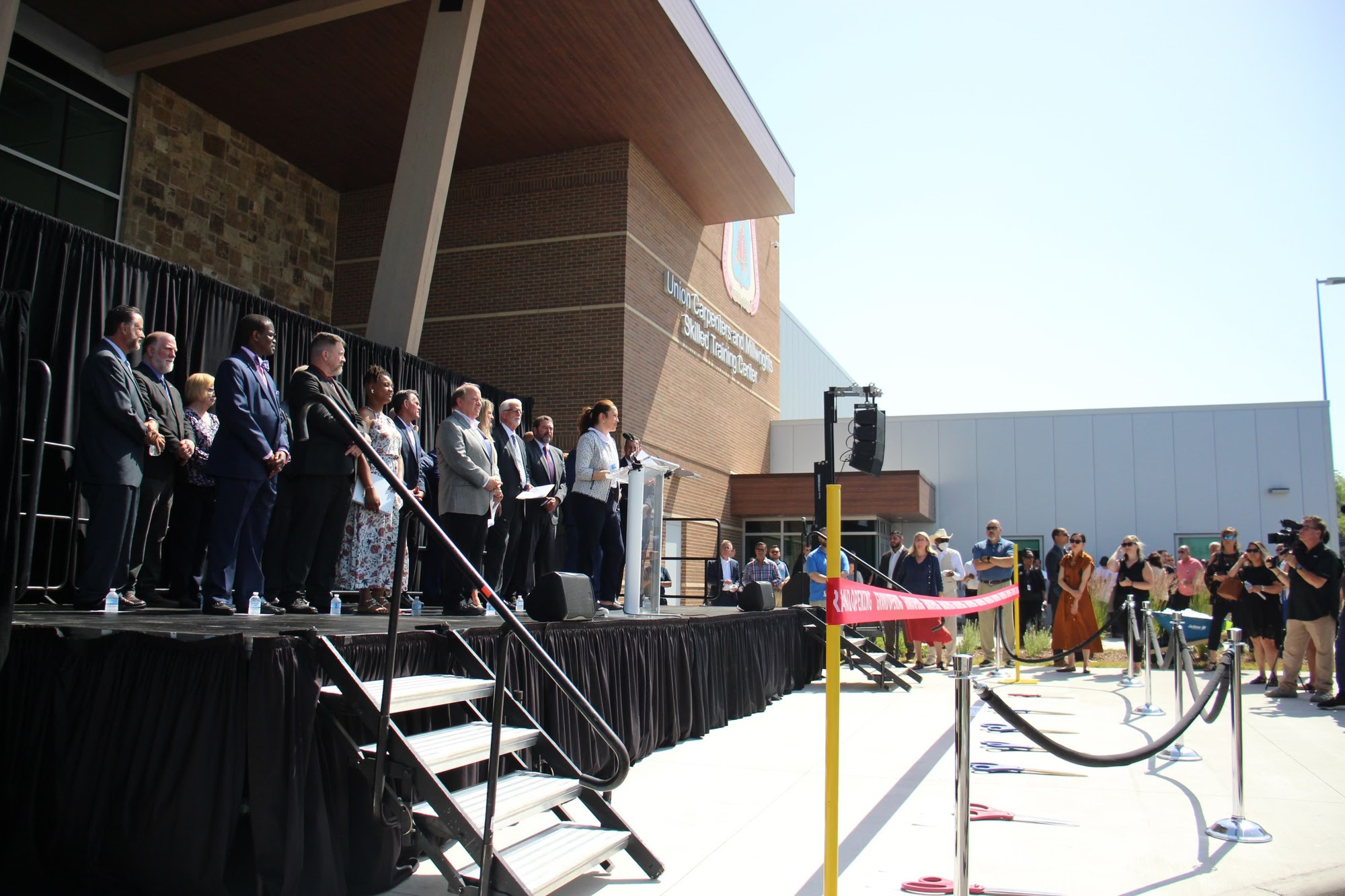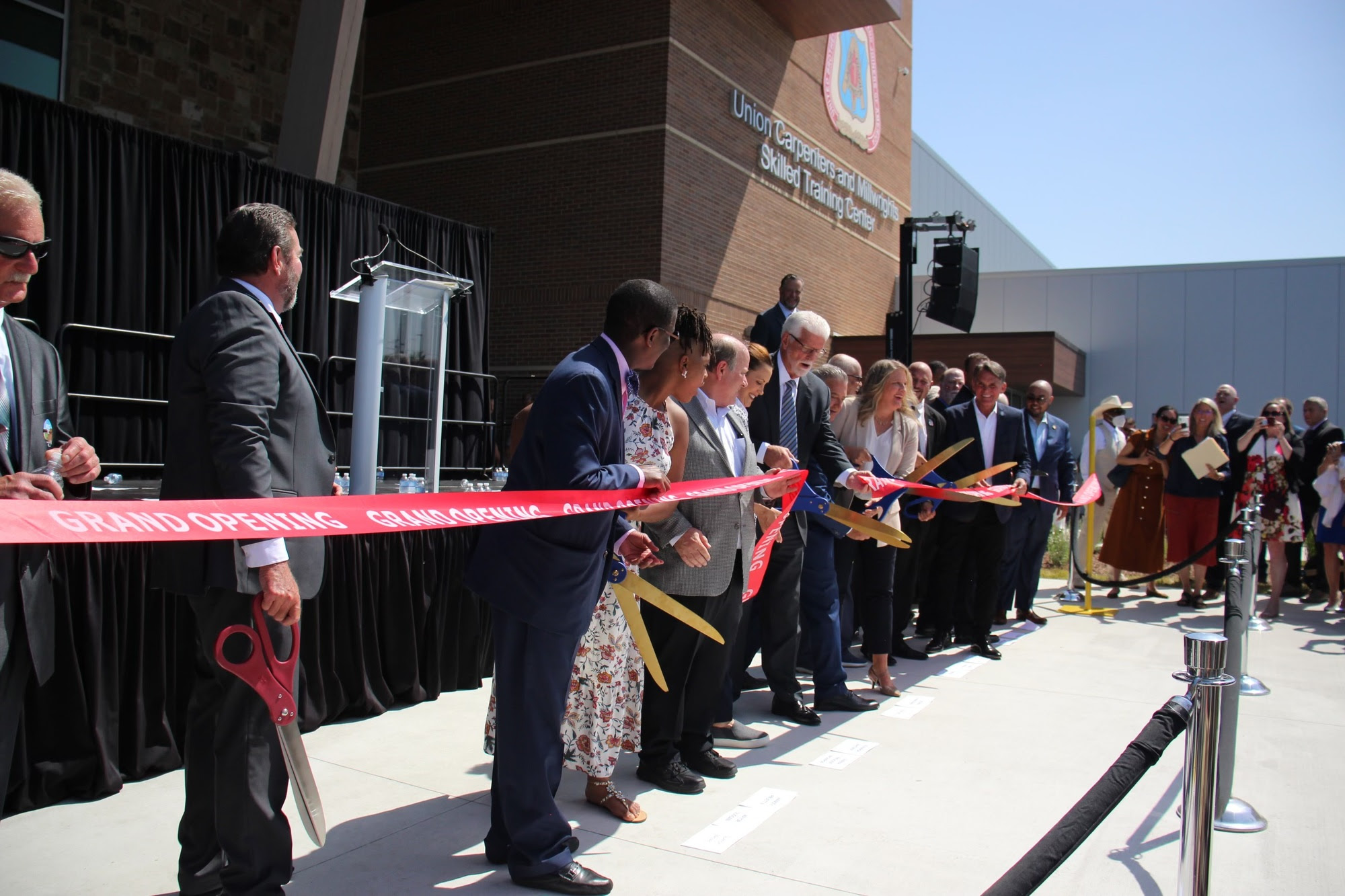
by orionontv | Jun 20, 2022 | Feature Writers, High School Sports

Written Saturday June 18th at 7:15 PM
Updated Sunday June 19th at 12:05 PM
Hello all, hope all is well. The MHSAA hasn’t released the boys and girls basketball districts as of yet. Now I did like a projection list of teams that could be the districts.
THESE ARE NOT THE OFFICIAL DISTRICTS, these are my projections. If you have any questions please comment on the comments, DM, or tweet me. I will gladly explain.
I used my early district projections along with the volleyball and MHSAA divisions lists for the 2022-2023 seasons which included the Co-Op’s and the teams that moved up.
Hopefully these are the districts. Here are my projections for Divisions one and two. It took me a few hours so here goes.
Division One
Alpena
Marquette
Petoskey
Sault Ste Marie
Gaylord
Traverse City Central
Traverse City West
Muskegon
Muskegon Mona Shores
Muskegon Reeths Puffer
Cedar Springs
Greenville
Rockford
Mt. Pleasant
St. Johns
DeWitt
Bay City Central
Bay City Western
Midland
Midland Dow
Saginaw Heritage
Saginaw Arthur Hill (Boys Only)
Grand Haven
Holland
Holland West Ottawa
Zeeland East
Zeeland West
Coopersville
Grand Rapids Northview
Grand Rapids Kenowa Hills
Grand Rapids Union
Grand Rapids Forest Hills Northern
Grand Rapids Forest Hills Central
East Grand Rapids
Grand Rapids Ottawa Hills
Grandville
Hudsonville
Jenison
Wyoming
Byron Center
Caledonia
East Kentwood
Lowell
Middleville Thornapple-Kellogg
Kalamazoo Central
Mattawan
Richland Gull Lake
St. Joseph
Stevensville Lakeshore
Battle Creek Harper Creek
Battle Creek Central
Jackson
Jackson Northwest
Battle Creek Lakeview
Coldwater
Kalamazoo Loy Norrix
Portage Central
Portage Northern
Sturgis
Mason
Grand Ledge
East Lansing
Lansing Holt
Lansing Everett
Lansing Waverly
Brighton
Hartland
Howell
Okemos
South Lyon
South Lyon East
Ann Arbor Pioneer
Ann Arbor Skyline
Ann Arbor Huron
Dexter
Saline
Belleville
Ypsilanti
Ypsilanti Lincoln
Romulus (Boys Only)
Taylor
Brownstown Woodhaven
Monroe
Riverview (Girls Only)
Gibraltar Carlson
Temperance Bedford
Trenton
Wyandotte Roosevelt
Canton
Plymouth
Salem
Northville
Novi
Novi Detroit Catholic Central
Detroit Henry Ford
Livonia Stevenson
Livonia Churchill
Livonia Franklin
Redford Thurston
FARMINGTON
Dearborn
Dearborn Heights Crestwood
Dearborn Fordson
Allen Park
Wayne Memorial
Westland John Glenn
Detroit Cass Tech
Lincoln Park
Detroit Martin Luther King
Detroit Western
Melvindale
River Rouge
BERKLEY
OAK PARK
SOUTHFIELD ARTS AND TECH
Detroit Renaissance
Detroit Mumford
Detroit University-Detroit Jesuit
Fraser
Grosse Pointe North
Grosse Pointe South
Hamtramck
HARPER WOODS
St. Clair Shores Lakeview
Roseville
Sterling Heights
Warren Cousino
Warren Woods Tower
Warren Mott
Warren De LaSalle
GROVES
SEAHOLM
BLOOMFIELD HILLS
NORTH FARMINGTON
Birmingham Brother Rice/Birmingham Marian
Orchard Lake St. Marys/Farmington Hills Mercy
TROY
TROY ATHENS
ROCHESTER
ADAMS
STONEY CREEK
ROYAL OAK
Chippewa Valley
Macomb Dakota
Sterling Heights Stevenson
Macomb L’Anse Creuse
Macomb L’Anse Creuse North
St. Clair Shores LakeShore
Romeo
Utica Eisenhower
Utica
Utica Ford II
Port Huron
Port Huron Northern
Lapeer
Davison
Flint (Boys Only)
Flint Kearsley
Flint Carman Ainsworth
Flushing
Fenton
Linden
Holly
Grand Blanc
Swartz Creek
CLARKSTON
LAKE ORION
OXFORD
AVONDALE
PONTIAC
Waterford Kettering
Waterford Mott
Milford
Lakeland
Walled Lake Western
Walled Lake Central
Walled Lake Northern
WEST BLOOMFIELD
Division Two
Escanaba
Gladstone
Kingsford
Negaunee
Houghton
Boyne City
Cheboygan
Kalkaska
Grayling
Kingsley
Big Rapids
Reed City
Cadillac
Ludington
Remus Chippewa Hills
Clare
Gladwin
Ogemaw Heights
Standish Sterling
Midland Bullock Creek
Shepherd
Fruitport
Montague
Muskegon Oakridge
Muskegon Orchard View
Whitehall
Spring Lake
Fremont
Grant
Howard Tri County
Newaygo
Sparta
Grand Rapids Forest Hills Eastern
Comstock Park
Grand Rapids Catholic Central
Grand Rapids West Catholic
Wyoming Lee
Alma
Belding
Central Montcalm
Ionia
Portland
Grand Rapids Christian
Grand Rapids South Christian
Grand Rapids West Aviation Academy
Kentwood Grand River Prep
Wyoming Godwin Heights
Wyoming Kelloggsville
Allendale
Hamilton
Holland Christian
Hopkins
Hudsonville Unity Christian
Comstock (Boys Only)
Allegan
Ostego
Paw Paw
Plainwell
South Haven
Coloma (Boys Only)
Benton Harbor
Berrien Springs
Buchanan
Dowagiac
Edwardsburg
Niles
Battle Creek Pennfield
Constiantine
Marshall
Parchment
Three Rivers
Vicksburg
Charlotte
Eaton Rapids
Hastings
Lake Odessa Lakewood
Olivet
Wayland
Fowlerville
Haslett
Lansing Catholic
Lansing Eastern
Lansing Sexton
Williamston
Adrian
Chelsea
Hillsdale
Jonesville (Boys Only)
Parma Western
Onsted
Pinckney
Carleton Airport
Milan
Tecumseh
Dundee
Ida
Monroe Jefferson
Flat Rock
Grosse Isle
New Boston Huron
Riverview (Boys Only)
Romulus Summit Academy North
Taylor Prep
Romulus (Girls only)
Ann Arbor Father Gabriel Richard
Canton Prep
Dearborn Divine Child
Dearborn Star International
Garden City
Dearborn Advanced Tech
Dearborn Heights Annapolis
Dearborn Henry Ford Academy
Dearborn Heights Robichaud (Boys Only)
Detroit Cesar Chavez
Detroit Cody
Detroit Lincoln King
Detroit Voyaguer
Livonia Clarenceville
Redford Union
Redford Westfield Prep
FERNDALE
FERNDALE UNIVERSITY
Hazel Park
Clawson
Warren Fitzgerald
Warren Lincoln
Detroit Collegiate Prep
Detroit Edison
Detroit Southeastern
Detroit University Prep
Detroit University Prep Arts and Design
Detroit University Prep Science and Math
Detroit Denby Tech
Detroit East English
Detroit Osborn
Eastpointe
Harper Woods Chandler Park
St. Clair Shores South Lake
Bloomfield Hills Cranbrook Kingswood
Detroit Country Day
Orchard Lake St. Marys (Girls Only)
Pontiac Notre Dame Prep
Wixom St. Catherine Sienna Academy
Center Line
Macomb Lutheran North
Madison Heights Lamphere
Warren Michigan Collegate
Warren Regina
Algonac
Armada
Marine City
Marysville
Richmond
St. Clair
Almont
Croswell-Lexington
Imlay City
North Branch
Yale
Durand
Flint Powers
Goodrich
Lake Fenton
Brandon
Clio
Corunna
Flint Hamady
Flint (Girls Only)
Mt. Morris
Owosso
Birch Run
Bridgeport
Saginaw
Caro
Frankenmuth
Bay City John Glenn
Carrolton
Essexsville Garber
Freeland
Saginaw Swan Valley
Saginaw Arthur Hill (Girls Only)

by Becky Andrus | Jun 20, 2022 | Regional News

Gov. Whitmer and Lt. Governor Gilchrist Sign Juneteenth Proclamation
Today marks the first time Juneteenth is recognized as a state holiday in Michigan
LANSING, Mich. — Today, Governor Gretchen Whitmer and Lieutenant Governor Garlin Gilchrist II issued a proclamation declaring June 19th as Juneteenth Celebration Day in Michigan. Juneteenth commemorates the day in 1865 when slavery was abolished in the United States.
“We are proud to celebrate Juneteenth as an official state holiday for the first time,” said Governor Whitmer. “Today presents an important opportunity to celebrate and elevate the stories of Black Americans as we continue to make record investments in communities of color. Since we took office, the lieutenant governor and I have prioritized building a state representative and responsive to the people we serve, addressing racial disparities and improving equity across Michigan. I am proud to declare June 19th as Juneteenth Celebration Day, and I am committed to working with anyone to build a more equitable and just state for all Michiganders.”
“Juneteenth marks a crucial day in our nation’s history to recognize the important progress we’ve made, while committing ourselves to the ongoing effort to center equity in all our work and make Michigan a place where every person can succeed,” said Lt. Governor Garlin Gilchrist II. “As the first Black lieutenant governor in our state, I’m building the policies and practices that will address and undo the damage racism and injustice has caused on our communities. That’s why we continue to invest in schools, job training, environmental justice, infrastructure and supporting businesses – all transformational investments and policies that celebrate, support and uplift communities of color. I am proud of the progress we’ve made thus far and will continue to work every day to make sure every all Michiganders have the support and opportunities they need.”
Juneteenth originated on June 19, 1865, when Union Army General Gordon Granger landed in Galveston, where he read General Order #3, stating that all slaves were free, and that former masters and slaves were absolutely equal in personal and property rights. Acting as the date of emancipation, June 19th also became a long-standing day of celebration, meant to honor African American resilience and the end of slavery.
Since they took office, Governor Whitmer and Lt. Governor Gilchrist have been committed to making Michigan a more equitable and just state. The governor assembled the most diverse cabinet in Michigan’s history to ensure that government is more representative of all Michiganders. More than 338 Black Michiganders have been appointed to boards, commissions and full-time positions, and 60% of appointees are women or people of color. The governor also appointed 12 Black Michiganders to the bench out of 41 judicial appointments. Under Executive Order 2020-163, the governor required implicit bias training for all state employees.
In response to COVID-19, Governor Whitmer established the Michigan Coronavirus Task Force on Racial Disparities by Executive Order 2020-55. The task force, which Lt. Governor Gilchrist chairs, has made real progress in bringing down the COVID disparity for Black Michiganders and has extended its work to tackling health disparities as a whole.
Additionally, Governor Whitmer signed Executive Order 2020-163, recognizing racism as a public health crisis and creating the Black Leadership Advisory Council. The Council is the first of its kind in Michigan to elevate Black leaders and representatives and take initial steps to address racism within state government.
Last year, Lt. Governor Gilchrist launched his ‘Making Real Change’ Tour across Michigan to highlight the administration’s continued efforts to flatten and eliminate racial disparities during the COVID-19 pandemic. The tour focused on what the state has learned to apply those lessons to equitably administering vaccines and building the resilience required to reduce racial disparities in health and other areas within communities.
Governor Whitmer made strides in police reforms when she called on the legislature to address racial disparities and strengthen relationships between law enforcement and communities of color. The governor also made Michigan a leader in transparency and accountability by developing a new web page to improve public access to information on the use of force and traffic stop data, department policies and training requirements.
View the full proclamation here.
|
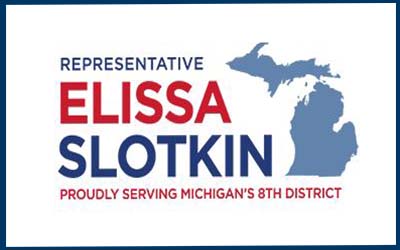
by Becky Andrus | Jun 20, 2022 | Regional News
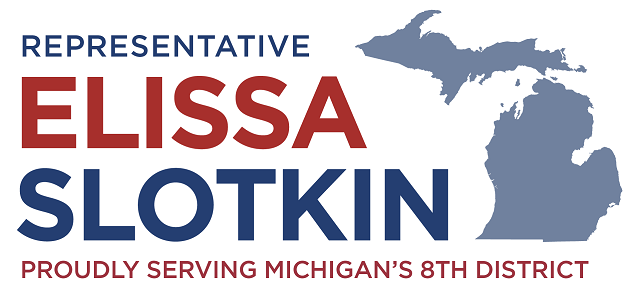 |
|
|
| Hi there,
Some HUGE news for our veterans – the Senate has passed a bipartisan deal on a landmark package of legislation to finally, and comprehensively, address toxic exposure. The bill now heads to the President’s desk.
Sometimes, really important, landmark things do get done in Congress — and sometimes you get to share those moments with folks who are directly impacted. Thursday was one of those days.
As the roll was called, the Congresswoman was able to watch from the Senate gallery with Ryan Hart and his family, who are visiting D.C. from Springfield Township for the induction ceremony of his late father, Paul, to the Vietnam Veterans Memorial Honor Roll.
Paul Hart passed away two years ago from lung cancer that resulted from exposure to Agent Orange during his service. It took our government decades to finally acknowledge the damage Agent Orange did to our troops, and too many lives were lost as a result.
Now, the 9/11 generation of American veterans – including many Michiganders – are struggling with the long-term consequences of burn pits, and red tape at the VA is blocking them from getting the care they’re entitled to.
The Veterans Burn Pits Exposure Recognition Act, which Rep. Slotkin introduced with her Republican colleague and fellow Michigander Rep. Peter Meijer over a year ago, is part of the package. It cuts red tape to make it easier for veterans to get benefits and care, and the Congresswoman is thrilled it’s included in this package, which the House will soon send to the President’s desk.
The Veterans Burn Pits Exposure Recognition Act will:
- Eliminate the unreasonable requirement that veterans prove they were exposed to burn pits during their service;
- Formally recognize that veterans who served near burn pits were exposed to airborne hazards and toxins, potentially aiding thousands of veterans who otherwise do not have documentation of their exposure;
- And require the VA to conduct a full medical examination on veterans to determine a potential connection between an ailment and past toxic exposure.
Burn pits are the post-9/11 generation’s Agent Orange, and we need to support them not just with words, but with action.
– Office of Rep. Elissa Slotkin |

by Becky Andrus | Jun 15, 2022 | Regional News

Gov. Whitmer Announces Investment to Help Build 529 Affordable Apartments, Townhomes, and Housing Units Across Michigan
LANSING, Mich. – Today, Governor Gretchen Whitmer announced the state is moving forward with a plan to invest $13 million to build 529 affordable apartments, townhomes, and housing units to help increase the amount of affordable housing options across the state amidst a housing shortage, which will help lower costs for Michiganders. The projects are located in Ann Arbor, Detroit, Grand Rapids, Jackson, Midland, Nashville, Traverse City, and Wyoming. The investment from these projects is expected to add approximately $151 million to the state’s economy and create 1,000 jobs.
“Michigan should always be a place where everyone can afford to live, work, and raise a family. As rent and home prices increase across the country, we are moving forward with an aggressive plan here in Michigan to build more quality affordable housing. This will help put money back in people’s pockets, and give them a place to call home,” said Governor Whitmer. “Since I took office, we have built nearly 12,000 affordable, attainable housing units, and I look forward to much more progress. Under the Building Michigan Together plan that I signed into law in April, we’re charging forward with an ambitious goal of creating 75,000 new or rehabilitated housing units within the next five years. When Michiganders have a safe place to call home, it serves as a launchpad for economic opportunity and a strong foundation for people to pursue their potential. Together, we can make necessary investments to create equitable pathways to attainable housing for all Michiganders.”
Through the federal Low-Income Housing Tax Credit (LIHTC) program, developers that receive awards can claim credits against their tax liability annually for up to 10 years – an important initiative that helps incentivize investments in affordable housing in local communities across the state. This current round of funding will enable the creation or preservation of 561 total units including market rate apartments.
“We know that creating affordable housing benefits everyone in the state by stimulating local economic growth, but it also creates opportunities for Michiganders to have equitable access to safe, quality, affordable housing for their families, making for stable and secure living and upward mobility,” said Chad Benson, MSHDA rental development director.
A full list of development projects includes:
|
|
|
|
|
|
|
|
|
|
|
|
|
|
|
Cinnaire Solutions Corp. & Woodbridge Neighborhood Development Corp.
|
|
|
|
|
|
Catholic Charities of Southeast Michigan & Cinnaire Solutions
|
|
|
|
|
|
Cass Corridor Neighborhood Development Corp
|
|
|
|
|
|
CHN Housing Partners & Detroit Blight Busters
|
|
|
Boston Square Together II
|
|
Brinshore Development LLC & Amplify GR
|
|
|
|
|
|
Woda Cooper Development, Inc.
|
|
|
|
|
|
MVAH Development LLC & Jackson Housing Commission
|
|
|
|
|
|
|
|
|
|
|
|
Dogwood Community Development
|
|
|
|
|
|
Traverse City Housing Commission, Cove Investments LLC & Ethos Development Partners
|
|
|
Union Suites at Michael II
|
|
Union Suites Development LLC & Dwelling Place of Grand Rapids
|
|
|
Building Michigan Together Plan Housing Investments
Governor Whitmer’s Building Michigan Together Plan will fund the construction of thousands of affordable, attainable housing units to give thousands of working families a stable foundation to pursue their potential. It will also help over 100,000 families stay in their homes with mortgage and rental assistance and finance energy-efficient home repairs, lowering costs for Michiganders.
Governor Whitmer’s Housing Investments
Since taking office, the Whitmer-Gilchrist Administration has made several investments to help families find a place to call home. The administration helped thousands of families buy homes with the Down Payment Assistance Program and MI Home Loan Mortgage Program, and provided services through the Housing Education Program to encourage homeownership and assist homeowners with the transition to new housing.
The governor also proposed funding for home repair and plumbing improvements for low-income households and encouraged housing developers to meet higher levels of sustainability commitments and energy efficiency by shifting construction of new units near amenities essential to healthy living like parks, grocery stores, and more.
|
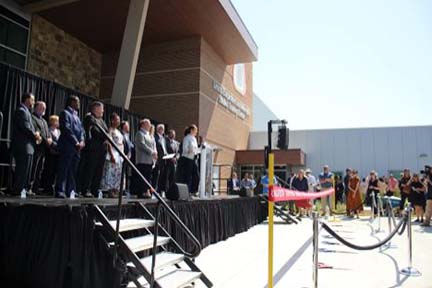
by Becky Andrus | Jun 15, 2022 | Regional News

Gov. Whitmer Kicks Off Grand Opening of Michigan Regional Carpenters and Millwrights’ State-of-the-Art Training Center in Detroit
DETROIT, Mich. – Today, Governor Whitmer joined labor leaders and local elected officials for the ribbon-cutting ceremony of the Michigan Regional Council of Carpenters and Millwrights’ (MRCC) new training center in northwest Detroit. The 145,000 square-foot training center is home to state-of-the-art classrooms, training areas, and some of the most advanced methods and tools in the industry. The new center will train up to 1,500 students a year and play a pivotal role in reaching the governor’s Sixty by 30 goal to have 60% of working-age Michiganders earn a skills certificate or postsecondary degree by 2030.
“As a proud, pro-union governor to my core, I am thrilled to celebrate the opening of the MRCC’s state-of-the-art center in Detroit that will train up to 1,500 Michiganders and help them land good-paying, high-skill union jobs,” said Governor Whitmer. “Michiganders rely on carpenters, millwrights, floor layers, piledrivers, and all our skilled trades to build the infrastructure that powers Michigan’s economy. Their hard work is the reason that since I took office through the end of this year, we will fix over 16,000 lane miles of road and 1,200 bridges, build or refurbish nearly 12,000 affordable housing units, and replace tens of thousands of lead service lines. With their partnership, I have acted to center working people in all the work that we do. Together, we reinstated prevailing wage, cracked down on payroll fraud, expanded opportunities for people to land good-paying union jobs, and continued delivering on the kitchen-table issues that matter most to working families. When working families succeed, we all succeed. Let’s keep getting things done together that make a difference in their lives.”
“The opening of this state-of-the-art training center right here in Detroit shows the commitment of carpenters and millwrights to preparing the best construction professionals and creating good-paying Michigan jobs,” said MRCC Executive Secretary-Treasurer Tom Lutz. “This new training center – built without any taxpayer dollars – represents a gateway to a promising future for countless men and women willing to learn and work hard in a rewarding, good-paying career. By locating our training center in a Detroit neighborhood, carpenters and millwrights are committed to supporting our communities, opening doors of opportunities for everyone, and doing our part to move Michigan forward.”
The sprawling facility houses classrooms and training areas for hands-on experience and real-world simulations. Students will study and train in an apprenticeship program designed and taught by the carpenters and millwrights union, which currently has more than 14,000 members across Michigan. Enrollment in the apprenticeship program is free, and students incur no debt for their education. Those who join MRCC’s apprenticeships also get good wages, healthcare, and pension benefits while they learn. The center will train up to 1,500 students a year.
The MRCC is a partner in Detroit’s job creation program and has pledged to triple the number of Detroit residents in the union’s apprenticeship program by ensuring that 25 percent of all incoming first-year apprentices are Detroit residents over the next decade. MRCC and its contractor partners fund all aspects of the apprenticeship program, including the construction of the new center.
“Thanks to this brand-new cutting-edge training center, the Michigan Regional Council of Carpenters and Millwrights is investing in Michigan workers, Michigan jobs, and Michigan’s future,” said Secretary of Labor Walsh. “The leadership of the carpenters and millwrights will help the United States and the State of Michigan continue to build the critical infrastructure we need to be competitive in a global economy. This new training center showcases the fact that good-paying jobs and rewarding careers are available right out of high school to those who are willing to learn, train and work hard. America needs well-trained, well-educated skilled trades professionals today and for years to come, and the carpenters and millwrights’ training center is the pipeline to good-paying and rewarding careers in construction that will always be in demand.”
“Skilled trades careers are a brotherhood and sisterhood of professionals who strive to be the best, look out for each other and rebuild America, Michigan and our neighborhoods from the inside out,” Doug McCarren, General President of the United Brotherhood of Carpenters said. “Carpenters and millwrights represent the future, and this training center will help thousands of residents in Detroit and beyond get access to the best training around so they can be part of a brighter future.”
“Businesses and companies in the construction industry are looking for the best trained, best educated, best-prepared workers around, and the Michigan Regional Council of Carpenters and Millwrights’ new training center in Detroit is an exciting opportunity for men and women to get that education and training for good-paying careers,” said Donna Pardonnet, executive director of the Architectural Contractors Trade Association of Michigan. “Construction jobs are in high demand and an apprenticeship at this new training center is a terrific way for young people to start a great career and get paid while they learn.”
Highly trained skilled trades professionals are in high demand in Michigan, and experts anticipate the current shortage of such workers to continue well into the next decade. Skilled trades professionals such as carpenters and millwrights account for more than 500,000 jobs in Michigan.
Investing in Michigan’s Workforce
Governor Whitmer is dedicated to helping Michiganders pursue their potential. Since she took office, she has worked across the aisle to establish critical workforce development programs and fund paths for workers to learn new skills and land good-paying jobs.
She established and funded Michigan Reconnect, a program that is providing tens of thousands of Michiganders tuition-free higher education or skills training that leads to a high-skill, good-paying job. Across three balanced, bipartisan budgets, she also funded and grew the number of apprenticeships and pre-apprenticeships offered in Michigan and set up and funded Futures for Frontliners to offers tens of thousands of Michiganders who served on the frontlines of the pandemic tuition-free paths to higher education.
All these efforts will help Michigan reach the Governor’s Sixty by 30 goal to increase the number of working-age adults with a skill certificate or college degree from 49% today to 60% by 2030. With this initiative, Michiganders will have greater access to the education and skills that create opportunities for better jobs and bigger paychecks.
Fighting for Working People
Governor Whitmer is dedicated to putting working people first through her actions. Her decision to reinstate prevailing wage for all state construction contracts ensures hard-working Michiganders can earn a decent standard of living, take care of their families, and have a secure retirement. Paying prevailing wage for state construction projects also guarantees taxpayers get a well-trained, skilled workforce to build safe, reliable infrastructure with the right mix and materials.
The governor also signed an executive directive cracking down on payroll fraud, ensuring that companies cannot misclassify their employees and deny them critical pay and benefits. She is proud to have appointed over 200 members of the labor community to state boards and commissions, ensuring their voices are at the table for key decisions.
|

by Becky Andrus | Jun 15, 2022 | Regional News

Governor Whitmer Invests $3 Million to Expand High-Speed Internet Access to 781 Homes and Businesses Across Michigan
LANSING, Mich. – Today, Governor Gretchen Whitmer announced the state would invest an additional $3.3 million in funding to bring high-speed internet access to more residents, homes, and small businesses across the state. The funds, which are distributed under the Connecting Michigan Communities (CMIC) grant program, will go towards projects that will extend high-speed internet service to 781 unserved homes and business in Michigan.
“Access to reliable, affordable high-speed internet is critical for families, small businesses, and communities across Michigan,” said Governor Whitmer. “The funding in the Connecting Michigan Communities grant program helps us connect more Michiganders to high-speed internet that meets their needs and empowers them to succeed. I am also proud of the bipartisan broadband investments we secured in the Building Michigan Together Plan I signed earlier this year that will help us expand high-speed internet to even more families and small businesses so we can keep growing our economy.”
“With access to affordable, high-speed internet as our tool, we can connect Michiganders to opportunity,” said Lt. Governor Garlin Gilchrist II. “We can uplift communities, grow our economy, and boost access to education and healthcare. Governor Whitmer and I are committed to expanding access to high-speed internet in Michigan through Michigan’s High-Speed Internet Office and recent Building Michigan Together plan investments, which have already connected tens of thousands of families and small businesses. Today, we are proud to announce further investments through the Connecting Michigan Communities grant program. These funds will make a difference for Manistee, St. Clair, and Menominee. We will continue working with anyone to connect Michigan families and small businesses, grow our economy, and create real change.”
With high-speed internet becoming a necessity in our educational, professional, and personal lives, the CMIC grant program was established to expand broadband service to unserved areas in Michigan and supports the mission of the new Michigan High-Speed Internet Office (MIHI). This is the fourth round of awards.
The $3.3 million grant funding was awarded to three projects across the state and will impact 781 locations. The overall economic benefits from these infrastructure initiatives are estimated to reach up to $1.4 million annually.
|
|
|
|
|
|
|
|
|
|
|
|
|
AcenTek is proposing a fiber to the home project that will connect 57 locations in Manistee County with speeds up to 1/0.2 Gbps
|
|
|
|
|
|
|
Duke Broadband is proposing a fiber to the home project that will connect 367 locations in St. Clair County with speeds up to 1/.1 Gbps
|
Upper Peninsula Telephone
|
|
|
|
|
Upper Peninsula Telephone is proposing a fiber to the home network that would connect 357 locations in Menominee County with speeds up to 1/1 Gbps
|
The first round of CMIC grant funds were announced in October 2020, with $11.9 million awarded to 10 projects to expand high-speed internet to 14,205 homes and businesses. A second round of funding distributed $1 million to expand the program to an additional four projects in April 2021. Another $15.3 million was awarded to 20 new projects in June 2021, which expanded access to 6,729 residents and businesses. Overall, the total grant funds awarded so far will impact more than 23,000 locations in Michigan and generate annual economic benefits that could exceed $42 million.
All projects awarded funding have committed to working toward the governor’s plan to close Michigan’s digital divide by expanding broadband, driving down costs, and boosting digital literacy. The projects will provide training materials to residents and businesses in their proposed service area, while working with local community and anchor institutions and foundations to host events to promote e-learning, job, and workforce training.
Access to broadband and high-speed internet is vital to people’s ability to work, learn and carry out business. The COVID-19 pandemic has made it more imperative than ever and building and strengthening broadband infrastructure throughout Michigan will be a driver of economic recovery efforts statewide.
A full list of the CMIC grant awards can be accessed on the CMIC website.
Governor Whitmer’s Action to Expand High-Speed Internet
Governor Whitmer believes every family and business in Michigan deserves access to a reliable, affordable high-speed internet connection that meets their needs. High-speed internet enables communities to develop and attract jobs and businesses. It expands economic opportunity for families, enhances educational experiences for students, and allows for remote access to key health care services.
- Set a state goal to provide 100% access to high-speed internet and 95% adoption by households during the next five years.
- Provided high-speed internet access to more than 18,000 homes and businesses, through the Connecting Michigan Communities Grant Program.
- Leveraged over $700 million in federal funding and signed the Building Michigan Together Plan that invested $249 million to connect more families and small businesses to fast, reliable high-speed internet that meets their needs.
- Established the Office of Rural Development to focus on growing rural economies including through collaborations with the Michigan High-Speed Internet Office to boost high-speed internet connectivity.
|










